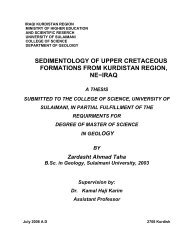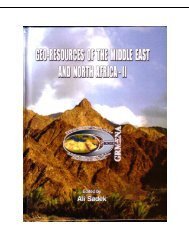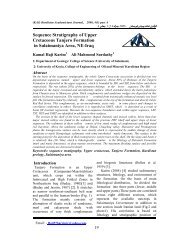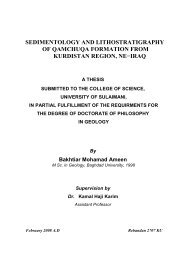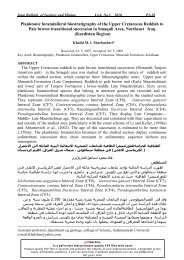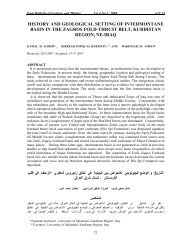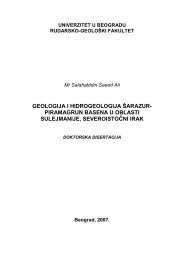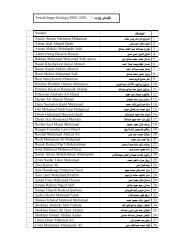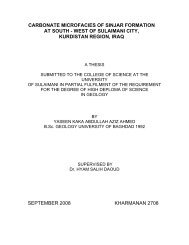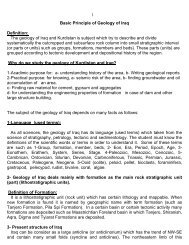a conglomerte bed as a possible lower boundary - Professor Kamal ...
a conglomerte bed as a possible lower boundary - Professor Kamal ...
a conglomerte bed as a possible lower boundary - Professor Kamal ...
You also want an ePaper? Increase the reach of your titles
YUMPU automatically turns print PDFs into web optimized ePapers that Google loves.
CHAPTER TWO<br />
STRATIGRAPHY AND SEDIMENTOLOGY<br />
conglomerate, include ripple marks (Fig.2.12). In both litholgies, the graded <strong>bed</strong>ding<br />
have erosional b<strong>as</strong>e and grading is normal type in which the grain size decre<strong>as</strong>es<br />
upwards. These <strong>bed</strong>s are deposited by either turbidity current or by storm generated<br />
geostrophic current. It occurs in both sandstone and pebbly sandstone <strong>as</strong> normal<br />
grading (fining upward), which might be cl<strong>as</strong>sified <strong>as</strong> Hummoke Cross Stratification.<br />
This structure is a part of ideal cycle called the Bouma cycle (Pettijohn, 1975).<br />
According to Bates and Jackson, (1980) graded <strong>bed</strong>ding is defined <strong>as</strong> a type of<br />
<strong>bed</strong>ding in which each layer displays a gradual and progressive change in particle<br />
size, from coarse at the b<strong>as</strong>e of the <strong>bed</strong> to fine at the top. They added that it may<br />
form under conditions under which the velocity of the prevailing current declined in<br />
gradual manner, <strong>as</strong> deposition from single short–lived turbidity current. According to<br />
Pettijohn, (1975) gadded <strong>bed</strong>s are deposited from waning turbulent flow and may<br />
range in thickness from a centimeter to one or more meters.<br />
Fig. 2.11: Cross lamination in the limestone of the P1 (limestone succession one)<br />
near Harmela Village, 12km e<strong>as</strong>t of Chuwarta Town.<br />
26




